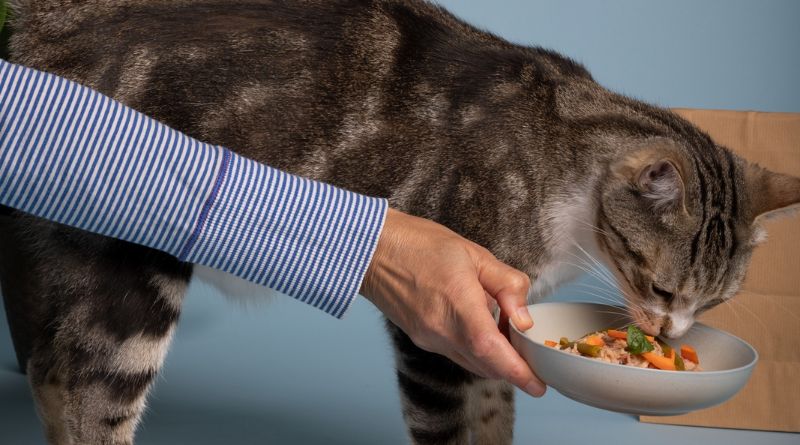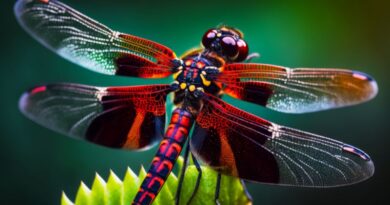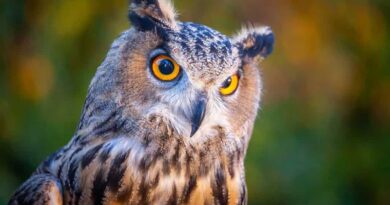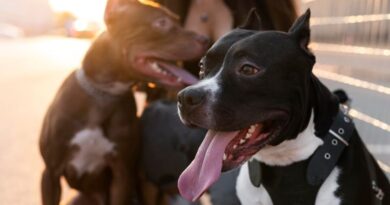Vegan Diet Options for Cats – The notion of feeding cats a vegan diet has sparked considerable debate, driven by ethical concerns, environmental considerations, and the desire to align pet care with plant-based lifestyles. While traditionally obligate carnivores, cats have nutritional requirements that must be carefully considered when exploring vegan alternatives.
This introduction aims to provide a brief overview of vegan diets for cats, touching on the motivations behind this dietary choice. It emphasizes the critical importance of consulting with a veterinarian before making any significant changes to a cat’s diet, highlighting the need for a balanced approach to ensure the fulfillment of essential nutrients.
As we delve into vegan diet options for cats, this discussion will address commercial offerings, homemade recipes, and the gradual transition process, all with a central focus on maintaining feline health and well-being.
Reasons for considering a vegan diet for cats
- Ethical Considerations: Some pet owners choose a vegan diet for their cats due to ethical concerns about the impact of meat production on animals. They may wish to extend their own ethical choices to their pets and reduce the demand for animal products.
- Environmental Impact: Adopting a vegan diet for cats aligns with the desire to reduce the ecological footprint associated with meat production. Advocates argue that plant-based diets for pets contribute to a more sustainable and environmentally friendly lifestyle.
- Allergies or Sensitivities: In certain cases, cats may exhibit allergies or sensitivities to specific animal proteins. A vegan diet, if carefully formulated, can eliminate the potential allergens present in traditional meat-based cat foods.
- Health Concerns: Some pet owners may turn to vegan diets for cats as an attempt to address specific health issues. While controversial, proponents argue that a well-balanced vegan diet can contribute to overall health and longevity for felines.
- Philosophical Alignment: Owners who follow a vegan or vegetarian lifestyle themselves may choose to extend their dietary choices to their pets based on philosophical alignment, seeing it as an extension of their shared values and lifestyle.
Also, Read – Cat Breeds With Big Eyes
Vegan Diet Options for Cats
Ami Cat
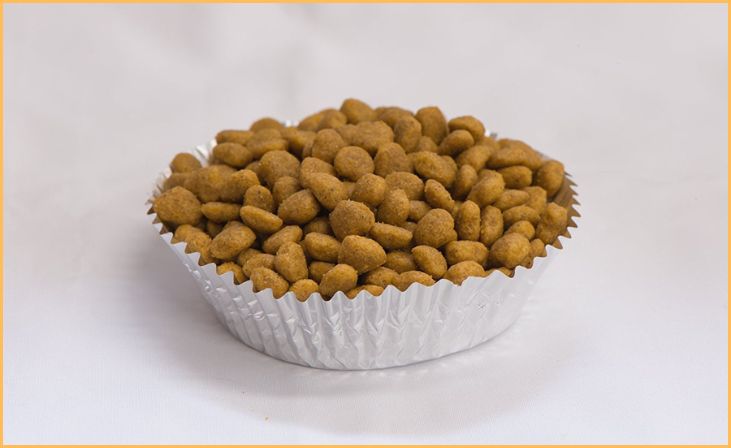
Ami Cat is a well-known brand offering a vegan cat food option. Formulated to meet feline nutritional needs without animal products, it provides a complete and balanced diet for cats. Ingredients include plant-based sources such as soy and grains.
This cat food aims to offer essential nutrients without compromising your cat’s health. Before making any dietary changes, consult with a veterinarian to ensure it aligns with your cat’s individual needs. Monitoring your cat’s health and seeking regular veterinary check-ups are crucial when transitioning to a vegan diet.
Evolution Diet Cat Food
Evolution Diet Cat Food is a plant-based option for feline nutrition. Crafted to provide a balanced and complete diet, it incorporates ingredients like soy, oats, and vegetables. This vegan cat food is formulated to meet the specific nutritional requirements of cats without the inclusion of animal products.
It includes essential nutrients to support your cat’s health, but it’s advisable to consult with a veterinarian before transitioning your cat to this diet. Monitoring your cat’s well-being and scheduling regular veterinary check-ups are important when introducing any new food to ensure it suits your cat’s individual needs.
Wild Earth Cat Food
Wild Earth Cat Food is a plant-based option designed to meet feline nutritional needs without animal ingredients. It features a blend of yeast protein, chickpeas, and oats to provide essential nutrients for your cat.
This vegan cat food aims to offer a complete and balanced diet, including amino acids like taurine. Prior to transitioning your cat, consult with a veterinarian to ensure the diet is appropriate for your cat’s individual health requirements.
Regular monitoring and veterinary check-ups are crucial during the transition to confirm your cat’s well-being on this plant-based diet.
Halo Holistic Garden of Vegan Cat Food

Halo Holistic Garden of Vegan Cat Food is a plant-based option catering to feline nutritional needs. Formulated without meat, it incorporates ingredients like peas, chickpeas, and pearled barley.
This vegan cat food aims to provide a complete and balanced diet, supporting your cat’s health with essential nutrients. Before transitioning your cat, consult with a veterinarian to ensure it aligns with your cat’s individual requirements.
Regular monitoring and veterinary check-ups are essential during the transition to confirm your cat’s well-being on this meat-free diet. It’s crucial to address any concerns or adjustments needed based on your cat’s response and health status.
Veganpet Vegan Cat Food
Veganpet Vegan Cat Food is a plant-based option designed to meet the nutritional needs of cats without animal products. Comprising ingredients such as peas, rice, and soy protein, this cat food aims to provide a complete and balanced diet.
Supplemented with essential nutrients like taurine, crucial for feline health, it’s formulated to support your cat’s well-being. Before transitioning your cat, consult with a veterinarian to ensure it aligns with your cat’s individual health requirements.
Regular monitoring and veterinary check-ups are vital during the transition to confirm your cat’s thriving on this vegan diet and to address any specific health considerations.
Also, Read – Best Cat Breeds for People With Allergies
A Purrfect Cat Food
A Purrfect Cat Food offers a plant-based option for feline nutrition, featuring ingredients like peas, rice, and soy protein. This vegan cat food is formulated to provide a complete and balanced diet, supporting your cat’s health without the use of animal products.
It aims to meet essential feline nutritional requirements, including amino acids like taurine. Prior to transitioning your cat, consulting with a veterinarian is essential to ensure the diet aligns with your cat’s individual health needs.
Regular monitoring and veterinary check-ups are crucial during the transition to confirm your cat’s well-being on this vegan diet and to address any specific health considerations.
Nature’s Recipe Healthy Skin Vegetarian Recipe
Nature’s Recipe Healthy Skin Vegetarian Recipe offers a vegetarian cat food option that excludes meat. While not explicitly labeled as vegan, it features plant-based ingredients such as soybean meal, rice, and other vegetable sources.
The formulation aims to provide a balanced and nutritious diet for cats, promoting healthy skin. Before transitioning your cat to this vegetarian diet, consult with a veterinarian to ensure it meets your cat’s individual nutritional needs.
Regular monitoring and veterinary check-ups are essential during the transition to confirm your cat’s well-being and address any specific health considerations. Adjustments may be needed based on your cat’s response and health status.
Vegepet Vegecat Phi

Vegecat Phi is a supplement designed for homemade vegan cat food recipes, ensuring they meet feline nutritional requirements. This product includes essential nutrients such as taurine and arachidonic acid, crucial for your cat’s health.
By adding Vegecat Phi to your cat’s homemade meals, you can provide a balanced and complete diet without the use of animal products. However, it’s essential to consult with a veterinarian before implementing any homemade diet to ensure it meets your cat’s specific nutritional needs.
Regular monitoring and veterinary check-ups are vital during the transition to confirm your cat’s well-being on this vegan supplement and address any health considerations.
Conclusion
In conclusion, while the idea of a vegan diet for cats may stem from ethical, environmental, or health-related motivations, the debate surrounding its appropriateness persists. Prioritizing a cat’s nutritional needs and overall well-being is paramount.
Veterinary consultation remains crucial to navigate the complexities of feline nutrition, ensuring that any dietary choices align with the individual cat’s health requirements. As the discourse continues, a balanced approach that considers both ethical considerations and a cat’s unique dietary needs remains the key to responsible pet care.
FAQs
Cats require protein, taurine, B12, A, and arachidonic acid. Vegan cat foods should be carefully formulated, and supplements may be needed.
Yes, several brands offer commercial vegan cat food. Look for products meeting AAFCO standards and consult your vet before switching.
Yes, with caution. Homemade recipes must be well-researched, balanced, and supplemented appropriately. Always consult your veterinarian.

